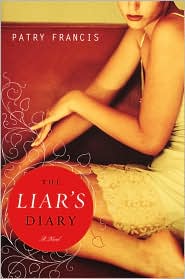I had high hopes for today. Writing plans. A concrete goal. I’m flailing because I’m sick. Okay, okay, I’m not THAT sick, just heavy-headed and scratchy-throated enough that serious development work isn’t going to happen. I must be spry of mind for that, so maybe tomorrow then.
 But I can blog. I can tell you what I meant to accomplish today. After three intense weeks with the manuscript, I’m letting it sit for a week. So, my goal for the week was (still is?) to start a piece of short fiction — complete a first draft actually. It’s the story I mentioned here. It’s finally collected enough steam beneath it. I’ve got the central premise, the feeling…
But I can blog. I can tell you what I meant to accomplish today. After three intense weeks with the manuscript, I’m letting it sit for a week. So, my goal for the week was (still is?) to start a piece of short fiction — complete a first draft actually. It’s the story I mentioned here. It’s finally collected enough steam beneath it. I’ve got the central premise, the feeling…
Who am I kidding? I don’t have squat, but it does want to get written. I decided that instead of just writing, I’d give novelist Joshua Henkin’s thought process a try. (He wrote his latest novel, Matrimony, over 10 years and 3,000 pages, and though I haven’t read it yet, I’d bet his novel is recommendation-worthy. That said, he’s known for his short fiction.)
Joshua Henkin led a short-story workshop last weekend. It’s ridiculous to think we can learn anything in an hour, so I sat back and kept an ear-out for soundbites. Those little bits of insight that could help me with my process or simply get me thinking outside my box. Henkin provided the following handout, which might be a helpful spur for you, too.
Questions Joshua Henkin posts above his desk
1. What is the journey my charactes are taking?
2. Why am I telling the story today? What’s special about today — what makes it different from all other todays? (Addendum: May be confusing. This is from the protagonist’s point of view: What’s the urgency about today versus other todays in the character’s life? Why story being told now? Answering this can help pinpoint the character’s journey.)
3. Who is the protagonist, antagonist?
4. What does my protagonist want and what does s/he think s/he wants (often different)?
5. What will protagonist do to achieve these wants and who/what are the obstacles?
6. What important choice(s) is my protagonist making and with what consequences for him/her or others?
None of this is mind-bending, yet I’ve never gone about brainstorming like this before writing a short story. Today, I’d planned to give these questions a try — like an experiment. Tomorrow I shall do so, I promise!
Do any of you engage in this type of story development before you write (short fiction)? Is your process as concrete as going through a list of development questions? How much do you know before you write your first draft?









